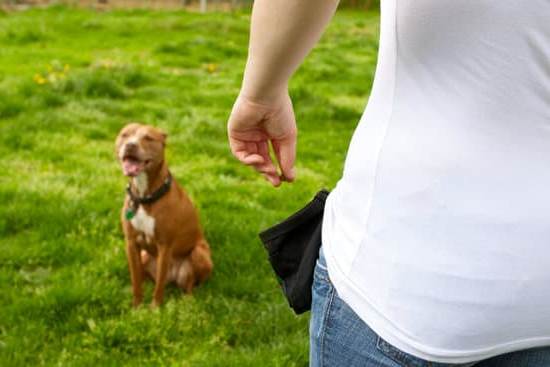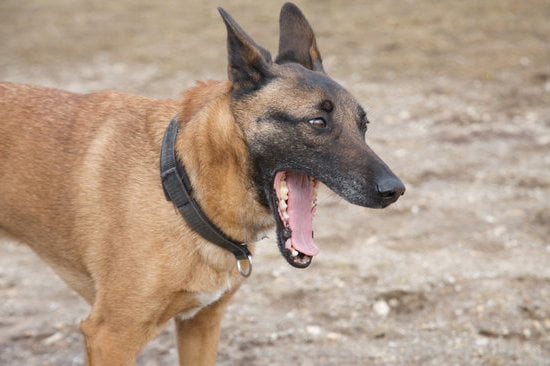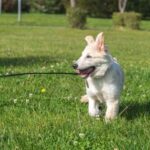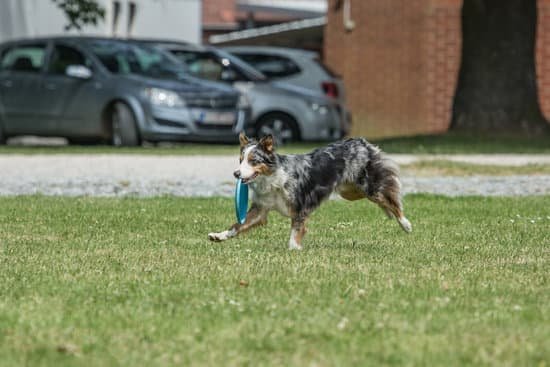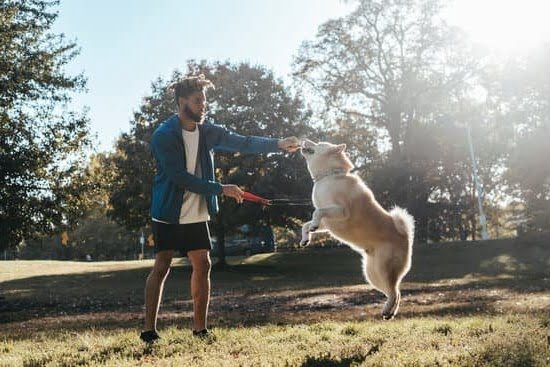How can I train my dog to stop eating poop is a common question that many pet owners ask when faced with this challenging behavior in their furry companions. Coprophagia, the act of dogs eating feces, can be not only unpleasant but also potentially harmful to their health. Understanding why dogs engage in this behavior is the first step towards effectively addressing and preventing it.
There are various health risks associated with dogs eating poop, including the transmission of parasites and diseases. This behavior can also lead to nutritional deficiencies and gastrointestinal issues in dogs. It is essential for dog owners to recognize the seriousness of coprophagia and take necessary steps to address it promptly.
There are several reasons why dogs may engage in coprophagia, ranging from behavioral issues such as boredom or anxiety to medical conditions like malabsorption disorders. Seeking advice from a veterinarian is crucial in ruling out any underlying health issues that may be causing your dog to exhibit this behavior. By understanding the root cause of your dog’s poop-eating habits, you can develop an effective training plan to help them overcome it.
Health Risks Associated With Dogs Eating Poop
Dogs eating poop, a behavior known as coprophagia, can pose serious health risks for our furry companions. Consuming feces can lead to the transmission of parasites and bacteria, potentially causing gastrointestinal issues and other health problems. In some cases, dogs may even develop infections or illnesses from ingesting contaminated stools. As responsible dog owners, it is crucial to understand the potential health risks associated with this behavior in order to take proactive steps to prevent it.
One of the key reasons why dogs should be discouraged from eating feces is the risk of contracting parasitic infections such as roundworms, hookworms, or giardia. These parasites can be present in the stool of other animals and can be transmitted to dogs through coprophagia. In addition, bacteria like salmonella or E. coli may also be present in feces and pose a threat to your dog’s health if consumed.
To address this issue and protect your dog’s well-being, it is essential to seek guidance from a veterinarian. A vet can conduct necessary tests to determine if your dog has picked up any parasites or bacteria from eating feces and provide appropriate treatment.
Additionally, they can offer tailored advice on how to prevent coprophagia and promote good hygiene practices for your pet. By working closely with a veterinarian, you can effectively safeguard your dog’s health and well-being while addressing this concerning behavior.
Reasons Why Dogs Engage in Coprophagia
Dogs engaging in coprophagia, or the act of eating poop, may leave pet owners puzzled and concerned. Understanding the reasons behind this behavior can shed light on how to effectively train your dog to stop this undesirable habit. There are several common explanations for why dogs engage in coprophagia, ranging from instinctual behavior to dietary deficiencies.
One common reason why some dogs eat poop is due to biological instincts inherited from their wild ancestors. In the wild, dogs and other predators may consume feces as a means of keeping their living areas clean and free from parasites. This behavior could be further compounded if a dog is confined to a small space with limited opportunities for exercise and mental stimulation.
Furthermore, dogs may develop coprophagia as a result of seeking attention from their owners. If a dog receives attention or even scolding when caught eating poop, they may inadvertently reinforce this behavior as a way to elicit a response from their caregivers. It is vital for dog owners to understand that punishing a dog for eating feces can sometimes exacerbate the issue rather than resolve it. Instead, positive reinforcement training techniques can be more effective in curbing this behavior.
| Reasons Behind Dog’s Coprophagia | Explanation |
|---|---|
| Biological Instincts | Dogs might inherit instinctual behaviors related to poop-eating from their wild ancestors. |
| Attention-Seeking Behavior | Dogs may eat feces to garner attention from their owners or caregivers. |
By recognizing these underlying factors contributing to coprophagia in dogs, pet owners can tailor their training approach accordingly to help their furry companions overcome this unsanitary habit. Consulting with a veterinarian or professional dog trainer can provide valuable insights and guidance on addressing your dog’s specific needs and challenges related to poop-eating behavior. With patience, consistency, and proper training techniques, you can effectively teach your dog to refrain from consuming feces and lead a healthier lifestyle.
Importance of Seeking Advice From a Veterinarian
Seeking advice from a veterinarian is crucial when trying to address the issue of coprophagia in dogs. A professional veterinary opinion can provide valuable insights into the underlying reasons for this behavior, as well as offer personalized recommendations on how to effectively manage and prevent it. Veterinarians can conduct thorough examinations to rule out any potential medical conditions that may be causing your dog to eat feces, such as digestive issues or nutrient deficiencies.
Medical Interventions
In some cases, a veterinarian may recommend specific medical interventions to help stop your dog from consuming poop. This could include prescribing medication to address underlying health issues, such as enzyme deficiencies or parasites, that may be contributing to the behavior. Additionally, veterinarians can suggest dietary supplements or probiotics that can help improve your dog’s overall digestive health and reduce the likelihood of coprophagia.
Behavioral Consultations
Aside from medical interventions, veterinarians can also provide behavioral consultations to help modify your dog’s poop-eating habits. They can offer guidance on effective training techniques and behavior modification strategies tailored to your individual dog’s needs. By working closely with a veterinarian, you can develop a comprehensive plan to discourage this undesirable behavior and encourage more appropriate alternatives.
By collaborating with a veterinarian, dog owners can gain valuable support and guidance in addressing coprophagia in dogs. Whether through medical interventions or behavioral consultations, seeking professional advice is essential in implementing successful strategies for preventing and stopping poop-eating behavior in your canine companion. Remember, it’s always best to consult with a qualified veterinary professional before making any significant changes to your dog’s diet or training regimen.
Strategies for Preventing Coprophagia in Dogs
Understanding Coprophagia in Dogs
Coprophagia, the act of dogs consuming their own feces or that of other animals, can be a frustrating and concerning behavior for pet owners. While the reasons behind this behavior can vary from medical issues to behavioral problems, it is essential to address it promptly. Understanding why dogs engage in coprophagia is the first step towards preventing this undesirable behavior.
Health Risks Associated With Coprophagia
One of the main concerns associated with dogs eating poop is the risk of ingesting parasites or pathogens present in the feces. These parasites can range from gastrointestinal worms to harmful bacteria, posing a serious threat to your dog’s health. Additionally, coprophagia can lead to nutritional deficiencies as the dog may not be getting all the necessary nutrients from its regular diet.
Strategies for Prevention
To prevent coprophagia in dogs, it is important to implement certain strategies. One effective method is ensuring that your dog’s living environment is clean and free of feces. This means promptly cleaning up after your dog and discouraging access to areas where they may find feces to eat.
Providing plenty of mental and physical stimulation through exercise and interactive toys can also help distract your dog from engaging in coprophagia. Finally, seeking advice from a professional dog trainer or behaviorist can provide you with expert guidance on how to train your dog effectively.
By taking proactive steps to prevent coprophagia, pet owners can ensure their dogs remain healthy and happy without succumbing to this undesirable behavior. Remember that patience and consistency are key when training your dog, and seeking help from professionals when needed can make a significant difference in addressing this issue effectively.
Positive Reinforcement Training Techniques for Stopping Poop-Eating Behavior
Training your dog to stop eating poop can be a challenging task, but with consistency and patience, it is possible to curb this behavior. Positive reinforcement training techniques are effective in modifying your dog’s behavior and encouraging good habits. Here are some strategies you can use to help your furry friend overcome the urge to eat poop:
- Use treats: When you catch your dog in the act of eating poop, redirect their attention to a more desirable behavior, such as sitting or laying down. Reward them with a tasty treat for obeying your command. This will reinforce positive behavior and discourage poop-eating.
- Teach the “leave it” command: Train your dog to respond to the “leave it” command when they approach feces. Start by placing a treat on the ground and covering it with your hand. When your dog shows interest, say “leave it” and reward them with a different treat for compliance.
- Consistent supervision: Keep a close eye on your dog when they are outside to prevent them from eating poop. If you see them heading towards feces, intervene immediately by calling them back or using a distraction technique.
These positive reinforcement techniques focus on rewarding desired behavior rather than punishing unwanted behavior. By consistently implementing these strategies, you can effectively train your dog to stop eating poop and promote healthier habits.
Remember that every dog is unique, so be patient and understanding throughout the training process. If you continue to struggle with stopping your dog from eating poop despite trying various techniques, consider seeking guidance from a professional trainer or behaviorist for personalized assistance.
Implementing a Healthy and Balanced Diet for Your Dog
One of the key strategies in preventing coprophagia, or poop-eating behavior, in dogs is to ensure that they are receiving a healthy and balanced diet. It is essential to provide your furry companion with nutritious food that meets their dietary needs.
Dogs may be more likely to eat poop if they are not getting the proper nutrients from their current diet. Consult with your veterinarian to determine the best type of food for your dog based on its age, breed, size, and any specific health concerns.
Incorporating high-quality dog food into your pet’s daily meals can help reduce the likelihood of them seeking out feces as an alternative source of nutrition. Look for dog foods that are rich in essential vitamins, minerals, protein, and fiber. Avoid feeding your dog table scraps or low-quality treats, as these may not provide the necessary nutrients and could contribute to coprophagia behavior.
Additionally, consider introducing natural supplements or probiotics into your dog’s diet to support their digestive health. A well-functioning digestive system can help prevent nutritional deficiencies that may lead to poop-eating tendencies. By prioritizing your dog’s diet and ensuring they are receiving proper nutrition, you can effectively address this concerning behavior and promote their overall well-being.
Implementing a healthy and balanced diet for your dog is a proactive step towards preventing coprophagia behavior. Providing your pet with quality food tailored to their nutritional needs can have a significant impact on reducing the urge to eat stool.
Remember that every dog is unique, so it may take some trial and error to find the most suitable diet for your furry friend. Consult with your veterinarian for personalized recommendations on how to improve your dog’s eating habits and overall health.
Creating a Safe and Clean Environment for Your Dog
Ensuring that your dog is in a safe and clean environment is crucial when trying to prevent them from indulging in coprophagia. By providing a clean living space for your furry friend, you’re reducing the chances of them coming into contact with feces and being tempted to eat it. Here are some tips on how you can create a safe and clean environment for your dog:
- Regularly clean up after your dog: Keep your yard, backyard, and living area free of any feces. This not only prevents your dog from accessing poop but also promotes good hygiene.
- Provide plenty of fresh water: Make sure your dog has access to clean water at all times. Proper hydration can help reduce the likelihood of coprophagia.
- Keep toys and chewables accessible: By providing appropriate toys and chewables, you divert your dog’s attention away from engaging in behavior like eating feces.
In addition to maintaining cleanliness, creating a safe environment also involves keeping harmful substances out of reach of your dog. Household items like cleaning chemicals, medications, or plants can be toxic if ingested by dogs. Be mindful of where you store these items to prevent any accidents. Moreover, secure trash cans properly to prevent your curious pup from digging into them.
Ultimately, a safe and clean environment not only contributes to preventing coprophagia but also ensures the overall well-being of your beloved pet. By taking proactive steps to keep their surroundings tidy and hazard-free, you’re creating a conducive space for positive reinforcement training techniques to be effective in addressing this behavior issue. Remember that consistency is key in training – patience and perseverance will go a long way in helping your dog overcome the habit of eating poop.
Conclusion
In conclusion, understanding the reasons behind why dogs eat poop is crucial in addressing and preventing coprophagia. While it may seem like a disgusting habit to humans, it is important to approach this behavior with patience, compassion, and a willingness to work towards a solution. By educating oneself on the health risks associated with dogs eating poop and seeking advice from a veterinarian, dog owners can take proactive steps in addressing this issue.
Implementing positive reinforcement training techniques can be highly effective in stopping poop-eating behavior in dogs. Rewarding your furry friend for good behavior and redirecting their attention away from consuming feces can help break this habit over time. Consistency is key in training your dog, so practicing these techniques daily will lead to long-term success.
Furthermore, providing your dog with a healthy and balanced diet as well as creating a safe and clean environment are essential factors in preventing coprophagia. Ensuring that your dog’s nutritional needs are met can reduce the likelihood of them seeking out feces as an alternative source of nutrients.
By taking these steps and being proactive in addressing this issue, dog owners can ultimately empower themselves to effectively train their dogs to stop eating poop. Remember, patience, consistency, and love are essential components in helping your canine companion overcome this undesirable behavior.
Frequently Asked Questions
How Do You Discipline a Dog That Eats Poop?
Disciplining a dog that eats poop can be challenging but important for their health and safety. One effective method is redirection – whenever you catch your dog in the act, use a firm “no” command and then redirect their attention to a toy or treat. Consistency is key in reinforcing this behavior.
What Will Stop Dog From Eating Poop?
To stop a dog from eating poop, it’s crucial to address any underlying medical issues first by consulting with a veterinarian.
Once medical causes are ruled out, techniques like cleaning up waste immediately, using deterrent sprays on feces, adding pineapple or pumpkin to their diet to make poop less appealing, and providing mental stimulation through toys and activities can help curb this behavior.
How Do You Break the Habit of Dogs Eating Poop?
Breaking the habit of dogs eating poop requires patience, consistency, and positive reinforcement. Start by ensuring your dog is getting enough nutrition in their diet to prevent nutritional deficiencies that may drive them to eat feces.
Additionally, increasing exercise, mental stimulation, regular feeding schedules, keeping the environment clean, using training commands like “leave it,” and rewarding good behavior can all help in breaking this undesirable habit over time.

Welcome to the blog! I am a professional dog trainer and have been working with dogs for many years. In this blog, I will be discussing various topics related to dog training, including tips, tricks, and advice. I hope you find this information helpful and informative. Thanks for reading!

